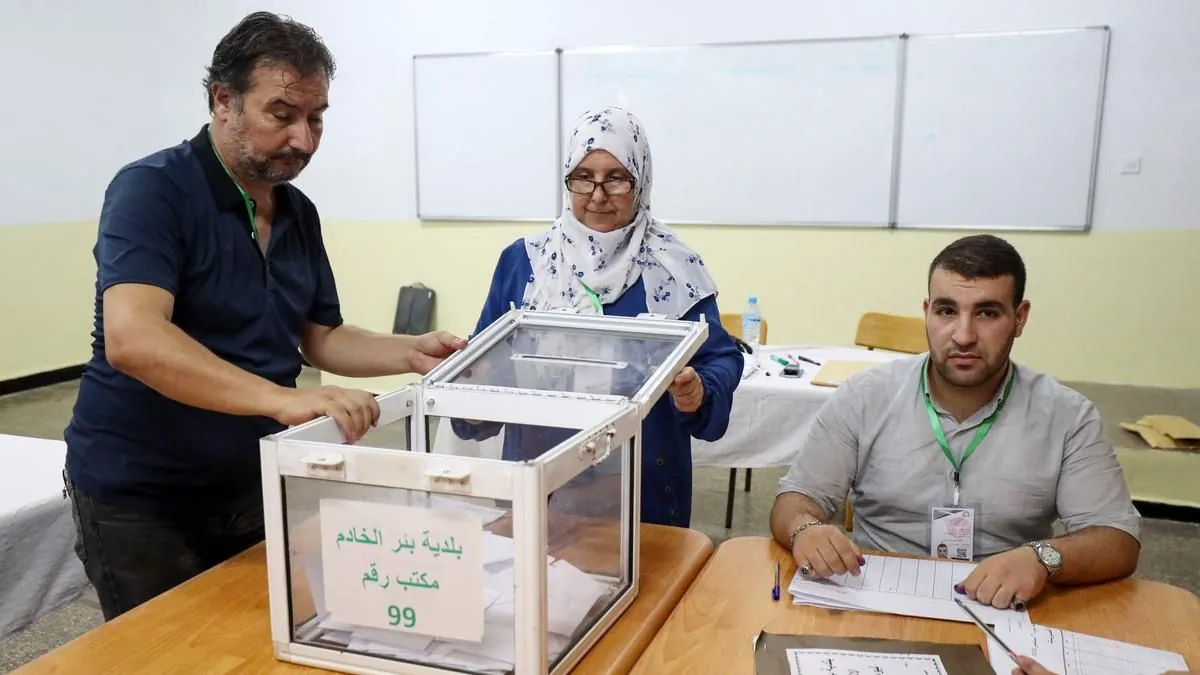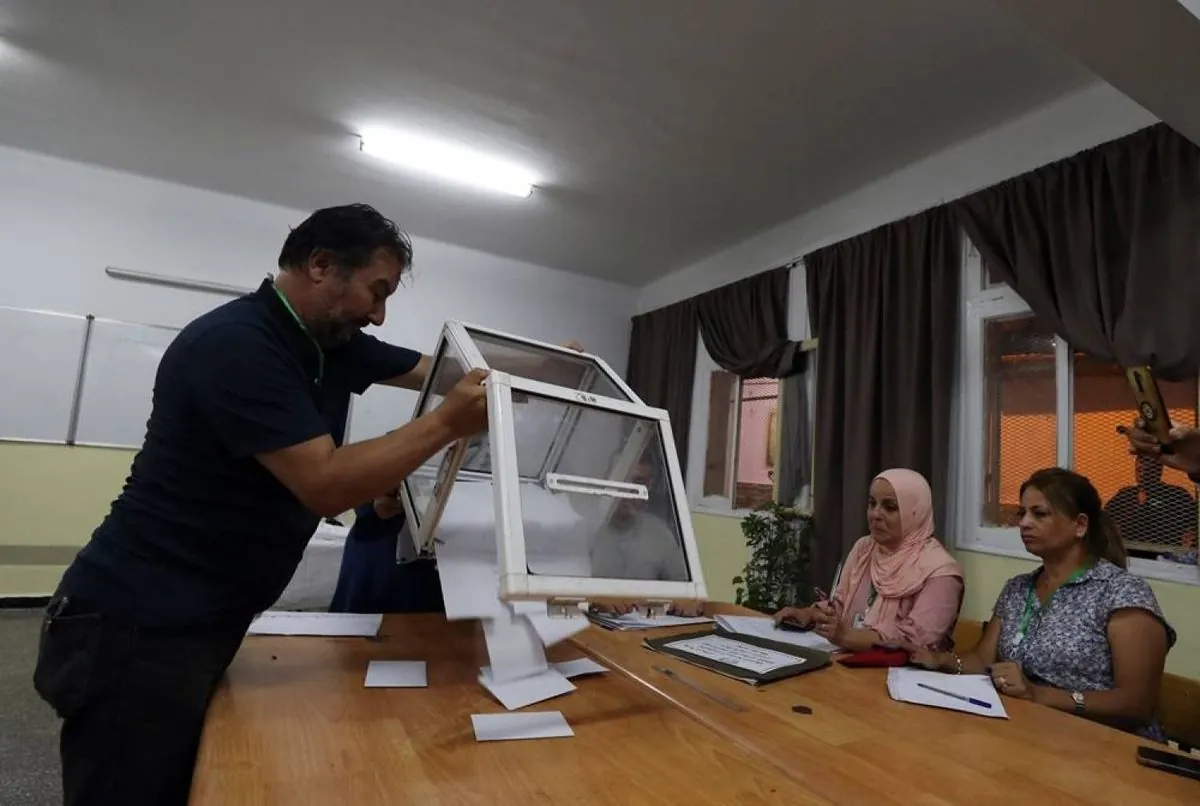Algeria Awaits Election Results Amid Low Turnout and Irregularity Claims
Algeria's presidential election concludes with allegations of voting irregularities. Incumbent President Tebboune expected to secure second term as nation faces economic challenges and political tensions.

As Algeria, the largest country in Africa, awaits the results of its recent presidential election, concerns about voter participation and electoral integrity have emerged. The election, held on September 7, 2024, saw a preliminary turnout of 48%, reflecting a subdued response from the electorate of over 44 million people.
Abdulmadjid Tebboune, the incumbent president, is anticipated to secure a second term in office. The election featured two other candidates: Abdelaali Hassani Cherif, representing a moderate Islamist stance, and Youcef Aouchiche, a secularist contender.
Allegations of irregularities have surfaced, with Hassani Cherif's campaign claiming instances of inflated results and proxy group voting. The campaign also reported failures in delivering vote-sorting records to candidates' representatives. These claims have not been independently verified, and attempts to reach Tebboune's and Aouchiche's campaigns for comment were unsuccessful.

Tebboune's expected re-election is likely to maintain Algeria's current governing approach, which has seen increased social spending fueled by rising energy revenues. As a member of OPEC, Algeria's economy heavily relies on oil and gas exports. Tebboune has pledged to continue enhancing unemployment benefits, pensions, and public housing programs, building on initiatives from his first term.
The political landscape in Algeria has been shaped by the "hirak" protests of 2019-2020, which led to the ousting of long-time leader Abdulaziz Bouteflika after two decades in power. These demonstrations, which brought hundreds of thousands to the streets weekly, were eventually curtailed by the COVID-19 pandemic.
Tebboune's first election in 2019 occurred during this period of political upheaval, with a turnout of only 40%. Since then, his administration has adopted a firm stance towards dissent, with several prominent activists facing legal consequences.
Algeria, with its rich history dating back to Roman times and its strategic Mediterranean coastline of about 1,600 kilometers, faces numerous challenges. Despite having one of the lowest external debt ratios in Africa and a literacy rate exceeding 80%, the nation grapples with economic diversification and political reform demands.
As the country awaits the official election results, expected on September 10, 2024, the outcome will likely influence Algeria's trajectory in addressing these pressing issues while maintaining its significant role in regional affairs, including its position as home to the second-largest military in Africa.


































